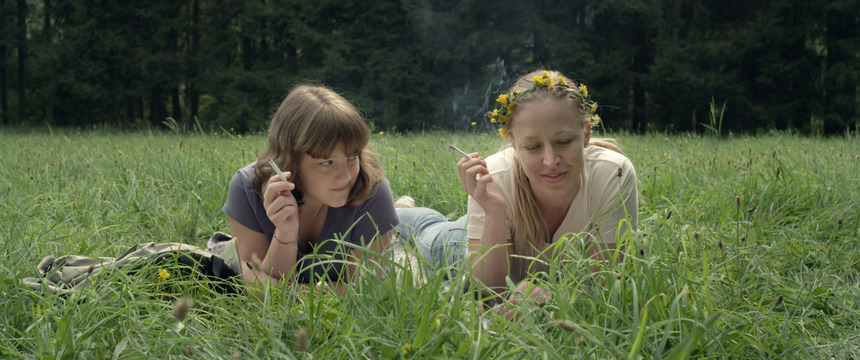Review: Katharian Mückstein's TALEA, a promising but not convincing look at a Mother-Daughter relationship

Jasmin, is a fourteen year old teenager, struggling with life with a mother who was just released from prison. Now Jasmin desperately tries to spend some time with her mother and runs away from her foster home.
Mückstein tells a coming-of-age story here, and she is deeply interested in the alienation of the daughter caused by the forced separation of her mother. Though the movie occasionally offers brief glimpses of hope it becomes apparent that Jasmin and her mother lead two different lives, and there is no getting back at a missed childhood and motherhood.
The emancipation of Michael Haneke is an important subject among young filmmakers in Austria. With his strict and argumentative rhetoric and his brilliant pictures the Oscar winner has been an influence for emerging directors in this country for the past decade. As a result many Austrian movies feel like light versions of a Haneke picture.
Though she avoids the Haneke-touch in her film, Mückstein only partly succeeds in finding her own voice. Instead she finds refuge in the aesthetics of the "Berlin School", the German cinema shaped by the likes of Christian Petzold or Ulrich Köhler.
Cool colors dominate the movie; it moves forward in long and patient observations and gives the feeling of a ghostly, almost abstract realism. Haneke is not far around the corner but the film definitely has more of a Berlin-feeling to it. At the same time Talea has some major flaws that cannot go unnoticed.
First the casting could have been better. Especially Nina Proll, a rather famous Austrian actress is so busy playing her part that one always watches an actress instead of the character she is supposedly playing. It is just too much for her to be the tough woman who comes out of prison. Sophie Stockinger as Jasmin gives at least a worthwhile performance although her dialogue sounds strangely artificial.
Another problem is the ignorance in sound design. A film that half of the time plays in forests and nature should have a few more sounds than never ending bird's twittering.
As much as the film is dedicated to realism it lacks in making it believable. Some scenes just feel faked especially when characters are eating or drinking. The same is true for the script itself, Mückstein establishes an interesting relationship but she fails in taking it either to extremes or to deal with it in a more subtle fashion. Talea is too clean, too nice, too rounded.
Emancipation also meant for Mückstein to stand on her own feet for once. She has some strong scenes like a remarkably well-lit dance in a pub or a long take of Jasmin riding her bike. The step away from Haneke was not a bad choice after all. But Mückstein's sense of rhythm and cinematography is more promising than Talea itself.
Talea is now showing in Austrian cinemas.

Do you feel this content is inappropriate or infringes upon your rights? Click here to report it, or see our DMCA policy.






